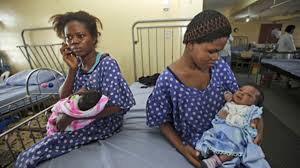In Nigeria, a lack of maternal healthcare, poor nutrition, and exposure to environmental toxins have led to a high rate of birth defects, with lasting consequences for the affected children and their families. Nigeria has high rate of birth defects, which is a symptom of underlying systemic issues, including poverty, inadequate healthcare, and environmental pollution. Without addressing these issues, the birth defect rate is unlikely to improve.
According to the World Health Organisation, the prevalence of birth defects in Nigeria is estimated to be between 12 and 20 per 1,000 live births. The states with the highest rates of birth defects include Kano, Lagos, and Rivers. These states also have some of the highest rates of poverty and malnutrition in the country. There are many potential causes of birth defects in Nigeria. One major factor is poverty, which can lead to poor nutrition and inadequate prenatal care. Other factors include exposure to environmental toxins such as lead, mercury, and pesticides. Additionally, genetic mutations can cause birth defects, and some ethnic groups in Nigeria may be more susceptible to certain genetic conditions. There is also evidence that certain infectious diseases can increase the risk of birth defects.
Children born with birth defects in Nigeria face a number of challenges. Many may experience physical and mental disabilities, such as intellectual disabilities, learning disabilities, and difficulty with communication. Children with birth defects may also face social and economic challenges, as they may be unable to find work or to fully participate in society. furthermore, some families may experience social stigma and discrimination due to their child’s condition. Poverty is one of the major risk factors for birth defects in Nigeria. Poverty can lead to malnutrition and a lack of access to medical care, both of which can increase the risk of birth defects.
In general, access to nutritious food and exercise opportunities can be a challenge for pregnant women in Nigeria. According to a study published in the Journal of Public Health, over 40% of women in Nigeria do not meet the recommended dietary allowance for key nutrients during pregnancy, including iron, folic acid, and calcium. In addition, many women do not have access to adequate exercise facilities or safe areas to exercise.
Heavy work and skipping antenatal care effectively contribute on the risk of birth defects. It’s true that strenuous physical labor during pregnancy can increase the risk of birth defects, and regular antenatal care is important for reducing the risk of birth defects. Antenatal care provides opportunities to detect and manage any conditions that could cause birth defects, such as infections or nutritional deficiencies. Some foods that pregnant women eat can increase the risk of birth defects. For example, fish that are high in mercury, such as swordfish and among others, should be avoided during pregnancy, as they can cause brain and nervous system damage in developing babies. Alcohol and caffeine should also be avoided, as they have been linked to an increased risk of birth defects. Additionally, it’s important for pregnant women to make sure they’re getting enough nutrients like folic acid and iron, as deficiencies in these nutrients can increase the risk of birth defects.
To help prevent birth defects, pregnant women should make sure to eat a variety of healthy foods, including; fruits and vegetables, especially those high in folate, such as spinach, asparagus, and broccoli, whole grains, like whole wheat bread and brown rice, lean proteins, such as chicken, fish, and eggs, low-fat dairy, like milk, yogurt, and cheese,healthy fats, such as avocados, nuts, and olive oil. Pregnant women should also make sure to limit their intake of processed foods, sugar, and saturated fats. In addition to avoiding excesses, pregnant women should also make sure to get enough rest and exercise. Exercise during pregnancy can help to reduce the risk of birth defects, while also improving overall health. It’s recommended that pregnant women get at least 30 minutes of moderate exercise every day, such as walking or swimming. In addition to exercise, it’s important for pregnant women to get 7-9 hours of sleep per night.
Potential solution to improve nutrition and exercise during pregnancy in Nigeria is to increase access to affordable and nutritious food options. This could be done through programs like food stamps or subsidized produce markets. Moreover, providing safe exercise spaces, such as community parks or walking trails, could help more women to get the recommended amount of exercise during pregnancy. These solutions would require government support and investment, but they could have a significant impact on improving the health of pregnant women and their babies.
Fadeela Mustapha Lawan,
Department of Mass Communication, Borno State University,
Maiduguri
Poor maternal healthcare and birth defects in Nigeria




